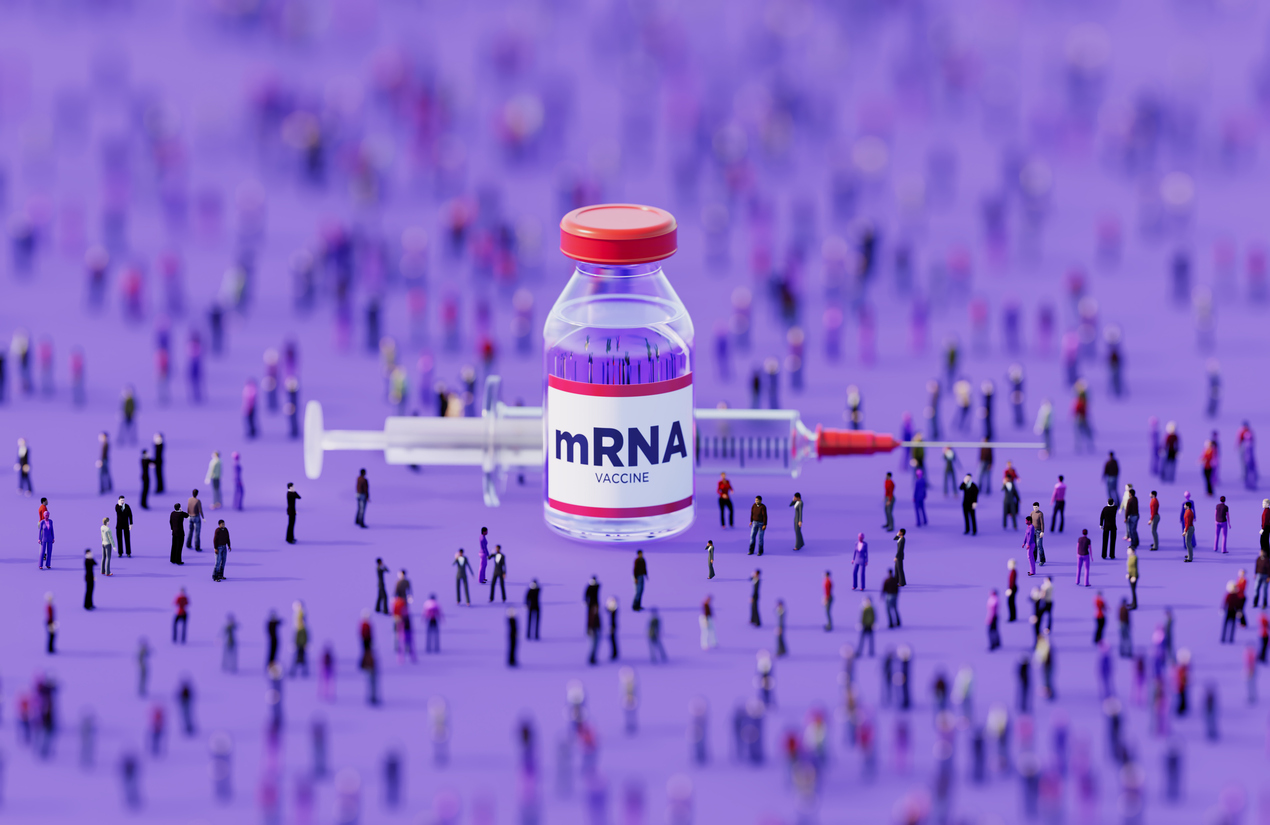MAHA win: HHS pulls $500 million from mRNA vaccine development

Health and Human Services (HHS) Secretary Robert F. Kennedy, Jr. announced Tuesday that the department is terminating 22 contracts for mRNA vaccine development, collectively worth about $500 million.
“Most of these shots are for flu or COVID. But as the pandemic showed us, mRNA vaccines don’t perform well against viruses that infect the upper respiratory tract,” Kennedy said in a video posted to social media, explaining that mRNA shots cause “antigenic shift.”
“Here’s the problem: mRNA only codes for a small part of the viral proteins, usually a single antigen. One mutation, and the vaccine becomes ineffective,” he stated. “This dynamic drives a phenomenon called antigenic shift, meaning that the vaccine paradoxically encourages new mutations and can actually prolong pandemics as the virus constantly mutates to escape the protective effects of the vaccine.”
Kennedy said the decision came after “reviewing the science” and consulting with “top experts” at the National Institutes of Health (NIH) and Federal Drug Administration (FDA).
“To replace the troubled mRNA programs, we’re prioritizing the development of safer, broader vaccine strategies, like whole-virus vaccines and novel platforms that don’t collapse when viruses mutate,” he added.
Legacy media outlets, which repeatedly exhorted the American public throughout the pandemic to “trust the experts” at the NIH and FDA, are now slamming the decision supported by those same agencies. Publications like the New York Times and The Associated Press cited university professors to back up their criticism.
The announcement came almost a month after the FDA approved Spikevax, Moderna’s mRNA COVID-19 vaccine, for children as young as six months. Nevertheless, in a recent interview with Tucker Carlson, Kennedy said he is “not satisfied” with the safety of mRNA technology and that the HHS has “a lot of skepticism about mRNA vaccines.”
“The safety studies simply have not been done,” said Kennedy. “But there is enough anecdotal reports of people getting profound injuries that may or may not be associated with it, and we’re going to answer those questions.”
Universal vaccines
The termination of the mRNA contracts will help offset the HHS’s $500 million investment to develop universal vaccines that protect against multiple strains of viruses.
Named Generation Gold Standard, the initiative aims to produce vaccines that use inactivated whole viruses, similar to those developed decades ago. Among the shots being researched is a universal flu vaccine co-developed by Dr. Matthew Memoli, who notably refused the experimental COVID-19 mRNA injections and now serves as principal deputy director of the National Institutes of Health. The vaccine is designed to protect against multiple strains of influenza.
Generation Gold Standard will also research universal COVID-19 and RSV vaccines. HHS intends to begin trials for a universal coronavirus shot by 2026 and obtain FDA approval by 2029.
“Our commitment is clear: every innovation in vaccine development must be grounded in gold standard science and transparency,” said Kennedy, who also refused the mRNA injections.
NIH Director Dr. Jay Bhattacharya, a third medical expert who declined the mRNA shots, touted the return to “traditional” vaccine technology.
“Generation Gold Standard is a paradigm shift,” Dr. Bhattacharya said in a statement. “It extends vaccine protection beyond strain-specific limits and prepares for flu viral threats – not just today’s, but tomorrow’s as well – using traditional vaccine technology brought into the 21st century.”
Kennedy’s HHS is seeking not only to change how vaccines are made—namely, by returning to inactivated viruses—but is also shifting away from the Biden administration’s excessive focus on the COVID-19 shots. The HHS has scrapped, for example, Project NextGen, a $5 billion Biden program to fund new coronavirus injections that the department has called “wasteful.”


.jpg)

